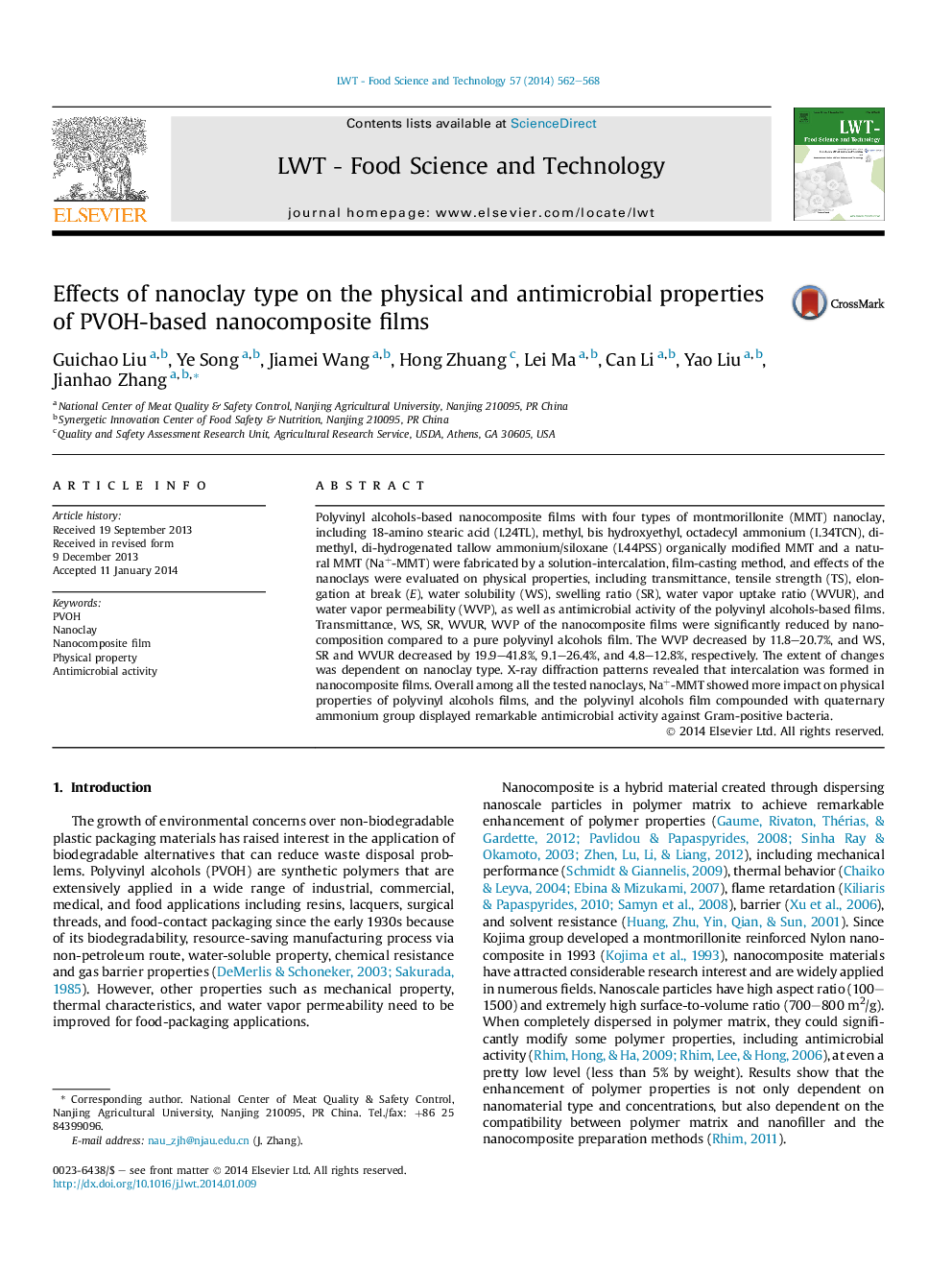| Article ID | Journal | Published Year | Pages | File Type |
|---|---|---|---|---|
| 6403382 | LWT - Food Science and Technology | 2014 | 7 Pages |
Abstract
Polyvinyl alcohols-based nanocomposite films with four types of montmorillonite (MMT) nanoclay, including 18-amino stearic acid (I.24TL), methyl, bis hydroxyethyl, octadecyl ammonium (I.34TCN), di-methyl, di-hydrogenated tallow ammonium/siloxane (I.44PSS) organically modified MMT and a natural MMT (Na+-MMT) were fabricated by a solution-intercalation, film-casting method, and effects of the nanoclays were evaluated on physical properties, including transmittance, tensile strength (TS), elongation at break (E), water solubility (WS), swelling ratio (SR), water vapor uptake ratio (WVUR), and water vapor permeability (WVP), as well as antimicrobial activity of the polyvinyl alcohols-based films. Transmittance, WS, SR, WVUR, WVP of the nanocomposite films were significantly reduced by nano-composition compared to a pure polyvinyl alcohols film. The WVP decreased by 11.8-20.7%, and WS, SR and WVUR decreased by 19.9-41.8%, 9.1-26.4%, and 4.8-12.8%, respectively. The extent of changes was dependent on nanoclay type. X-ray diffraction patterns revealed that intercalation was formed in nanocomposite films. Overall among all the tested nanoclays, Na+-MMT showed more impact on physical properties of polyvinyl alcohols films, and the polyvinyl alcohols film compounded with quaternary ammonium group displayed remarkable antimicrobial activity against Gram-positive bacteria.
Related Topics
Life Sciences
Agricultural and Biological Sciences
Food Science
Authors
Guichao Liu, Ye Song, Jiamei Wang, Hong Zhuang, Lei Ma, Can Li, Yao Liu, Jianhao Zhang,
